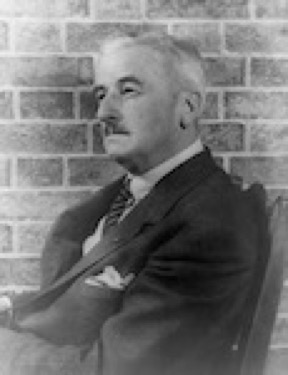Literary Critique - Barn Burning
July/13/2016 03:36 PM Filed: Literary Critiques

Photo Credit: Carl Van Vechten
(Wikimedia Commons)
William Faulkner and Class Consciousness
Faulkner’s portrayal of a boy torn between loyalty to his criminal father and need to protect the community is symbolic of the South’s slow progression to social justice. Like a child craving parental approval, the semi-reconstructed former Confederacy often sought the acclaim of its steadfast peers rather than make changes for the overall good of the United States.
In his 1939 story, “Barn Burning,” Faulkner named the young character after a fictional plantation owner, an educated Southern gentleman. With only Confederate interests at heart, this member of the country gentry was a hero only to his comrades.
The Union made significant attempts to control violence spurred by class differences and political power struggles, yet awareness of inequality determined status in every walk of life. Faulkner, a Nobel Prize winner, spotlighted the sad reality that the Civil War was not over. The impact of this bloody conflict disrupted the nation and placed all Americans on the defensive.
Faulkner writes, “He was a little stiff, but walking would cure that too as it would the cold, and soon there would be the sun. He went on down the hill, toward the dark woods within which the liquid silver voices of the birds called unceasing—the rapid and urgent beating of the urgent and quiring heart of the late spring night. He did not look back.”
Class consciousness is at the heart of this plot, recognition of what it is, and condemnation for what it accomplishes. In the last paragraph, Faulkner compares the sun to justice, the dark woods to slavery, and the silver voices of the birds to the emerging voices of freedom.